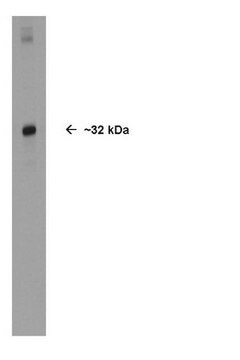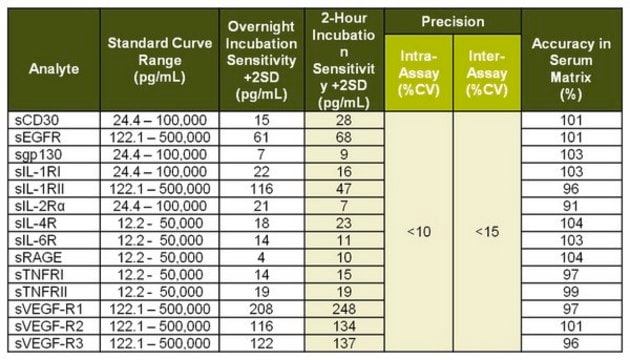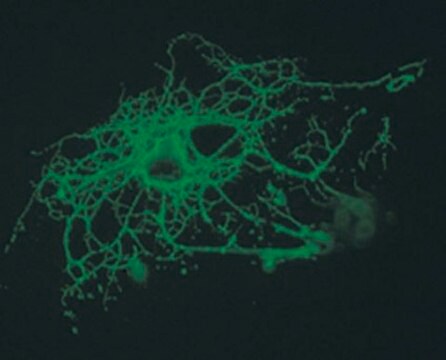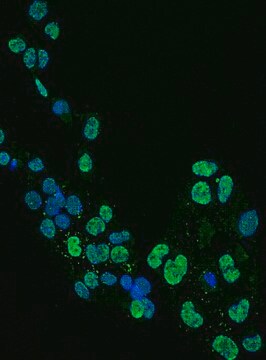AB9610-AF555
Anti-Olig-2 Antibody Alexa Fluor™ 555 Conjugate
from rabbit, ALEXA FLUOR™ 555
Synonym(s):
Oligodendrocyte transcription factor 2, bHLHe19, Olg-2, Oligo2, RACK17, RK17
About This Item
Recommended Products
biological source
rabbit
Quality Level
conjugate
ALEXA FLUOR™ 555
antibody form
purified antibody
antibody product type
primary antibodies
clone
polyclonal
species reactivity
rat, mouse, human
technique(s)
immunofluorescence: suitable
NCBI accession no.
UniProt accession no.
General description
Specificity
Immunogen
Application
Neuroscience
Transcription Factors
Quality
Immunofluorescence Analysis: An 1:150 dilution of this antibody detected Olig-2 in mouse brain tissue.
Target description
Physical form
Storage and Stability
Other Notes
Legal Information
Disclaimer
Not finding the right product?
Try our Product Selector Tool.
Storage Class
12 - Non Combustible Liquids
wgk_germany
WGK 2
flash_point_f
Not applicable
flash_point_c
Not applicable
Certificates of Analysis (COA)
Search for Certificates of Analysis (COA) by entering the products Lot/Batch Number. Lot and Batch Numbers can be found on a product’s label following the words ‘Lot’ or ‘Batch’.
Already Own This Product?
Find documentation for the products that you have recently purchased in the Document Library.
Our team of scientists has experience in all areas of research including Life Science, Material Science, Chemical Synthesis, Chromatography, Analytical and many others.
Contact Technical Service








